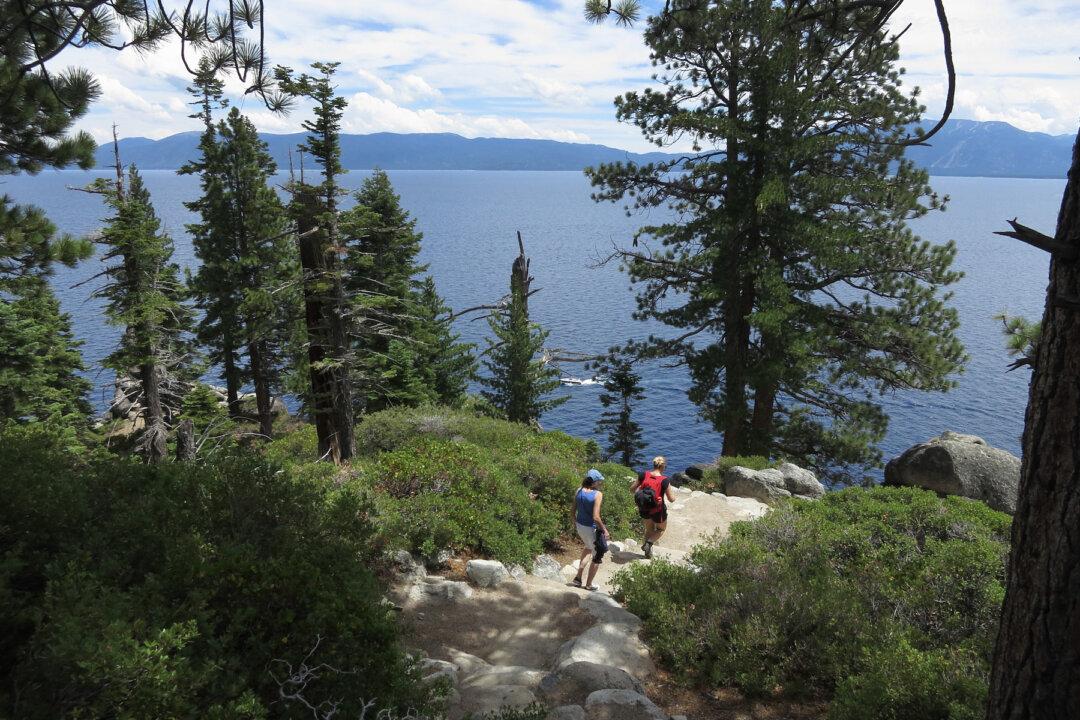Voters in the mountain resort town of South Lake Tahoe in Northern California voted overwhelmingly to reject a proposal to tax owners of vacant homes.
South Lake Tahoe Voters Block Measure to Tax Vacant Homes
Homeowners would have faced taxes of up to $6,000 per year for houses left unoccupied for more than six months.

Visitors hike through D.L. Bliss State Park at Lake Tahoe near South Lake Tahoe, Calif., on July 22, 2014. Sean Gallup/Getty Images




